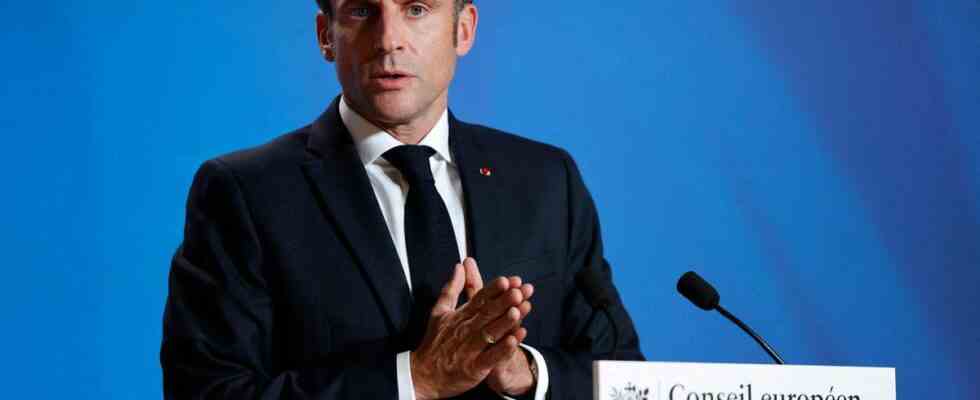Not compatible with the objectives of the Paris agreement… For this main reason, France will withdraw from the Energy Charter Treaty (ECT)announced Emmanuel Macron, this Friday, at the end of a summit of the European Council, in Brussels, relates the francetvinfo website.
The Energy Charter Treaty (ECT) is an international trade and investment agreement aimed at promoting cooperation in the energy sector. It was signed by France in 1994 and then ratified in 1999.
Deemed incompatible with the Paris Agreement
It is judged by several authorities as being too protective of fossil fuels. In June, the EU obtained the reform of the little-known TCE, which is too protective of fossil fuels. But the compromise is considered insufficient by the NGOs, who are asking the Europeans to withdraw.v In an opinion issued on Wednesday evening, the High Council for the Climate (HCC) proved them right: “None of the possible scenarios at the end of the fifteenth round of negotiations (…) will allow the signatory parties to commit to a path of decarbonization of their respective energy sectors by 2030 and beyond. the height of the ambition of the Paris Agreement”, says this independent French advisory body.
Signed at the end of the Cold War, the TCE aims to offer guarantees to investors in the countries of Eastern Europe and the former USSR. Bringing together the EU and 52 countries, it allows companies to claim, before a private arbitration tribunal, compensation from a State whose decisions affect the profitability of their investments, even when it comes to pro- climate.
Emblematic case: after the adoption of a Dutch law banning coal by 2030, the German energy company RWE is claiming 1.4 billion euros from The Hague to compensate for its losses on a thermal power station.
“A risk of limiting the climate ambition of States”
In its opinion, the HCC pinned the “multiplication of litigation”, which leads to a “loss of sovereignty” and risks “limiting the ambition of States” in “the implementation of their energy and climate policies”.
Pitfalls that the proposed modernization of the text “does not rule out on its own”, affirms the Council, recommending rather “a coordinated withdrawal of the TCE on the part of France and the EU, coupled with a neutralization of its ” “survival clause”, which would protect the fossil facilities covered by the treaty for another 20 years.
This option is “the least risky for respecting national, European and international commitments on the climate”, estimates the HCC. It could be “implemented without delay” thanks to the European Commission’s proposal at the beginning of October of an additional agreement between the Member States confirming “the non-application of the ECT intra-Community”.
France, not the first to withdraw
“This opinion is of capital importance, it is timely because it is now that the next step for the TCE is decided”, rejoiced with AFP Yamina Saheb, expert of the Giec, “it is indeed the least expensive and least risky option for us, it goes with the flow of history”.
Before France, the Netherlands already announced on Wednesday that they would leave the treaty, just like Spain and Poland previously. Russia already withdrew from the treaty in 2009, followed by Italy in 2015.

